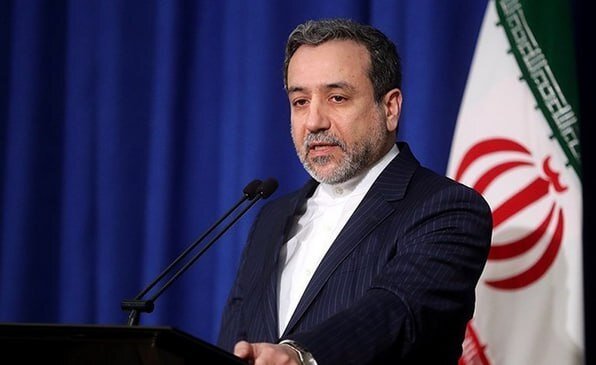A Firm Stance from Tehran
Iranian Foreign Minister Abbas Araqchi has declared that talks with the United States are impossible unless Washington changes its pressure policy. This statement comes as Iran prepares to respond to a letter from former US President Donald Trump, who proposed negotiations on a new nuclear deal. Iran’s Supreme Leader, Ayatollah Ali Khamenei, has already dismissed the US offer as deceptive, emphasizing that engaging with the Trump administration would only lead to tighter sanctions and increased pressure on Iran. This development highlights the deep mistrust between the two nations and the challenges of reviving diplomatic efforts.
Trump’s Letter and Iran’s Response
Earlier this month, Donald Trump revealed that he had sent a letter to Iran’s Supreme Leader, Ayatollah Ali Khamenei, outlining two options for handling Iran: military action or a negotiated deal. The letter, which was described as both a warning and an offer, sought to reignite discussions on a new nuclear agreement. However, Khamenei rejected the offer, describing it as a deceptive tactic aimed at further isolating Iran.
Foreign Minister Araqchi echoed this sentiment, stating that Tehran would soon respond to both the threats and opportunities presented in Trump’s letter. He emphasized that Iran’s refusal to negotiate with the US is rooted in historical experience and the current pressure campaign imposed by Washington. “Under these conditions, it is no longer possible to enter into talks with America. Unless certain approaches change,” Araqchi said.
The US Pressure Campaign
Since Trump’s return to the White House, the US has reinstated its maximum pressure campaign against Iran, including efforts to reduce the country’s oil exports to zero. Four rounds of sanctions have been imposed on Iran’s oil sales, severely impacting its economy. These measures have been part of a broader strategy to force Iran into compliance with US demands, including restrictions on its nuclear program and regional activities.
Araqchi criticized this approach, stating that it undermines the possibility of meaningful dialogue. “When we say no to negotiations with the US, it stems from a history and experience,” he said. The Iranian Foreign Minister highlighted the inconsistency of the US position, noting that while Trump has left the door open for a nuclear pact, his administration continues to escalate sanctions and pressure on Iran.
A History of Distrust
Araqchi emphasized that Iran’s reluctance to engage with the US is based on a history of broken promises and failed negotiations. The 2015 Joint Comprehensive Plan of Action (JCPOA), commonly known as the Iran nuclear deal, was a landmark agreement aimed at limiting Iran’s nuclear program in exchange for sanctions relief. However, the Trump administration’s withdrawal from the agreement in 2018 and the subsequent reimposition of sanctions have eroded trust between the two nations.
Iran has consistently accused the US of reneging on its commitments under the JCPOA, arguing that Washington’s actions have undermined the spirit of diplomacy. The Biden administration, which initially sought to revive the nuclear deal, has also faced challenges in rebuilding trust with Tehran. The current pressure campaign, coupled with Trump’s recent letter, has further complicated the prospects for renewed negotiations.
The Path Forward
Despite the current impasse, Araqchi did not completely rule out the possibility of future talks. However, he made it clear that any negotiations would require a significant shift in US policy. Iran has consistently called for the lifting of sanctions and a return to the terms of the JCPOA as a precondition for dialogue.
The Iranian Foreign Minister’s remarks reflect the broader sentiment in Tehran that the US must demonstrate goodwill and a commitment to diplomacy before any meaningful progress can be made. This includes addressing Iran’s concerns regarding sanctions, economic pressure, and regional security.
Read Also: “20-Year-Old Security Guard Beaten to Death Over Alleged Theft in Bauchi”
Regional and Global Implications
The ongoing tensions between Iran and the US have significant implications for regional and global stability. The Middle East, already a volatile region, has been further destabilized by the breakdown of the nuclear deal and the escalation of sanctions. Iran’s nuclear program, which has expanded in response to US pressure, remains a source of concern for the international community.
Efforts to revive the JCPOA or negotiate a new agreement are crucial for reducing tensions and preventing a potential nuclear crisis. However, the current stalemate highlights the challenges of diplomacy in a highly polarized environment.
A Call for Policy Change
Iran’s firm stance on nuclear talks underscores the deep mistrust between Tehran and Washington. As the US continues its pressure campaign, the prospects for a new nuclear deal remain uncertain. For any negotiations to succeed, the US must reconsider its approach and address Iran’s concerns regarding sanctions and economic pressure.
The path forward requires a commitment to diplomacy, mutual respect, and a willingness to compromise. Until then, the diplomatic stalemate is likely to persist, with both sides entrenched in their positions. The international community, including key stakeholders such as the European Union, Russia, and China, has a role to play in facilitating dialogue and reducing tensions.
For now, Iran’s message is clear: talks with the US are impossible without a fundamental change in Washington’s approach. The ball is in America’s court to demonstrate its commitment to diplomacy and pave the way for a peaceful resolution to the nuclear standoff.
